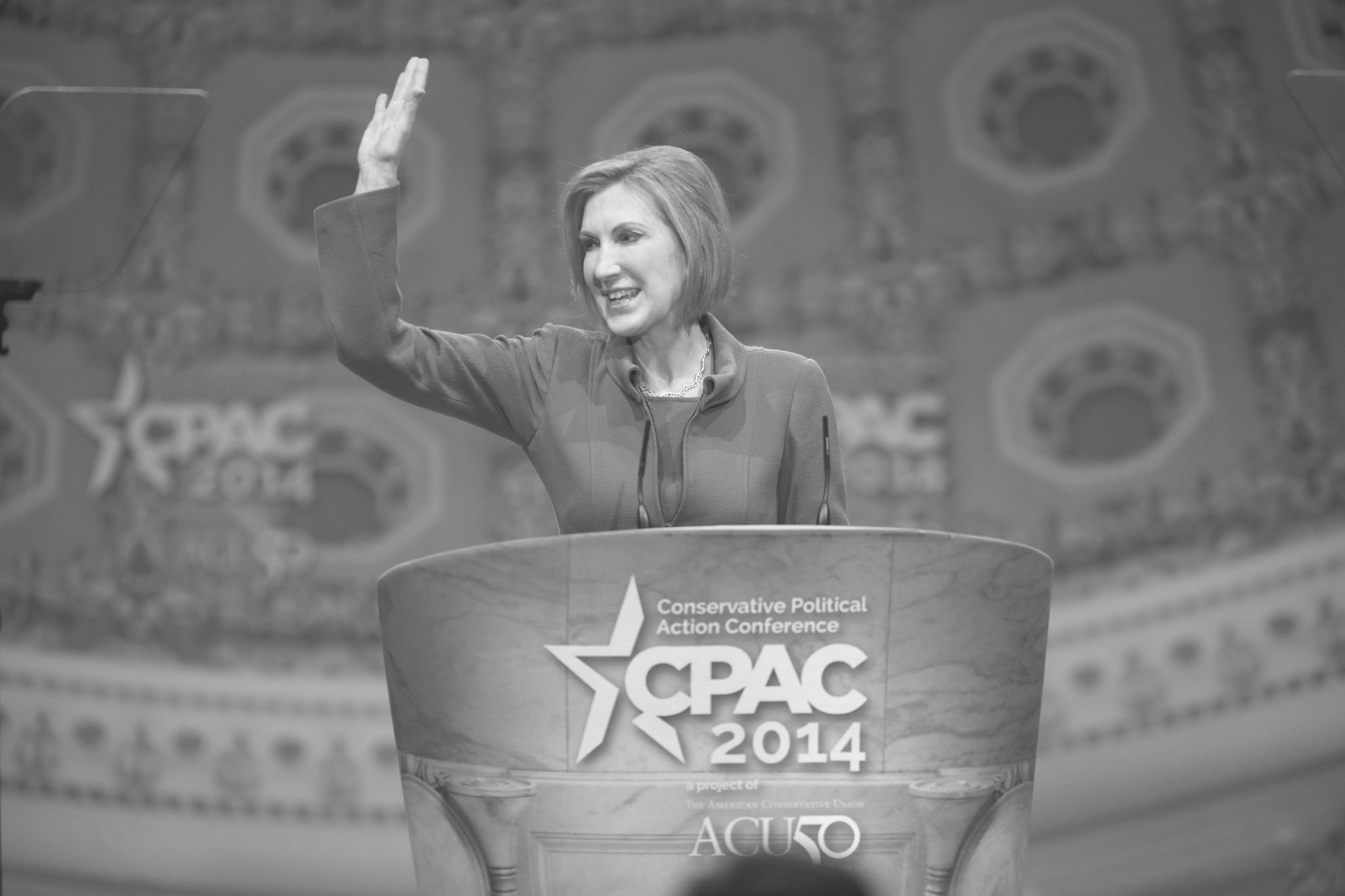
WikimediaCommons
As the first woman to lead a Fortune 100 company, a breast cancer survivor and the only female candidate to participate in the 2016 Republican presidential primaries, Carly Fiorina has seen her fair share of challenges and triumphs.
On Thursday evening, Fiorina spoke at Yale about her experiences in business and politics and reflected on the nature of leadership at an event hosted by the William F. Buckley Jr. Program. Throughout her speech, Fiorina encouraged audience members to maintain an optimistic outlook and strive to recognize untapped potential in themselves and their peers.
“Leaders see possibilities.” Fiorina said. “In particular, leaders see possibilities in people.”
Fiorina acknowledged that she has not always seen her own potential. After graduating from Stanford with degrees in medieval history and philosophy, she found herself begrudgingly enrolling at UCLA Law School and subsequently dropping out “before the first exam.”
Working as a secretary to get by, she did not begin her ascent up the coprerate ladder until her co-workers expressed confidence in her.
Fiorina talked about her time as chairman of Opportunity International — the “largest private microfinancing organization in the world” — during which she said she realized that it was a lack of opportunity, not potential, that stifled social mobility among the impoverished.
Through this experience, Fiorina said, it became clear to her that America’s greatness was the result of a commitment to equality of opportunity.
“This is the only country on Earth that is founded on the idea that everyone has a right to life, liberty and the pursuit of happiness.” Fiorina said. “I think that’s an old fashioned way to say: to fulfill your potential.”
Fiorina underscored the power that local communities have to enact positive change. She argued that the communities most heavily affected by a problem have the greatest incentive to solve it. Communities should be empowered to take matters into their own hands rather than waiting on some external institution to help them, Fiorina said.
During her speech, Fiorina expressed doubts about the federal government’s ability to solve the problems that Americans face on a daily basis. She cautioned against the concentration of power in “too few hands for too long,” which she said will always lead to corruption.
Fiorina chastised politicians for being all talk and no action, arguing that dysfunction remains the status quo on Capitol Hill.
“Leadership isn’t title, it isn’t position, it isn’t how big your office is,” she said. “And I think we’re very confused about what leadership is today because our politics are filled with people who aren’t leading, we’ve got lots of people with big titles who aren’t leading, and our culture doesn’t celebrate leadership.”
In the latter half of her speech, Fiorina discussed a number of current political issues facing the American public. While she criticized the Obama administration for passing the Affordable Care Act on a “partisan vote,” she noted that the Trump administration also eschewed compromise for partisan reasons in its advocacy for the GOP’s replacement plans.
Fiorina also called for reforms to the criminal justice system and federal policy on drug use.
She emphasized that “addicts are not criminals” and advocated for the medical treatment of addiction as opposed to the incarceration of the addict.
Students interviewed by the News had mixed responses to the event.
Laszlo Gendler ’20 said that he felt like he was at a campaign rally and not an intellectual talk.
“Carly Fiorina had a disorganized speaking style, repeatedly moving from point to point in a confusing fashion,” Gendler said. “She seemed more interested in selling herself and her books than contributing to dialogue on campus in an intellectually stimulating manner.”
Fiorina relied too heavily on big ideas and neglected to provide specific information, said Tony Oliverio ’20. Still, Oliverio said he was impressed by how Fiorina “captivated the audience with personal anecdotes and strong conviction.”
Bryce Byork ’20 said he found Fiorina’s speech interesting and compelling. Despite disagreeing with some of her political positions, Byork said he appreciated the “lessons and conclusions centered around teamwork” and thought Fiorina’s commitment to promoting compromise was admirable given the polarized political climate.
Fiorina was named the CEO of Hewlett-Packard Co., which has since split into Hewlett Packard Enterprise and HP Inc., in July 1999.
Daniel Dager | daniel.dager@yale.edu
Correction, Oct. 6: A previous version of this story misstated that the event took place on Friday. In fact, it took place on Thursday.







